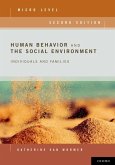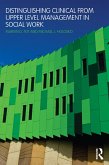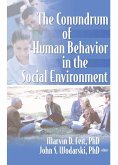A timely revision in this global age,
Human Behavior and the Social Environment, Macro Level develops a sophisticated and original view of the cultural, global, spiritual, and natural worlds that people inhabit, and the impact of these worlds on human behavior. Its major new theme, sustainability, emerges as a key characteristic of contemporary practice. What is sustainable social work? What are the characteristics of a sustainable community? How is the present exploitation of environmental resources unsustainable for future generations? Following the greatest economic upheaval since the Great Depression, how can we envision a sustainable economy that will benefit all the people, not only the wealthy few? Human behavior results from biological, psychological, socio-economic, and cultural forces, but the mental health field has placed the most emphasis on intrapsychic factors to the near exclusion of socio-economic and cultural considerations. This significant collaboration seeks to correct this omission by helping students recognize patterns in the family, culture, and value systems in order to create safe and sustainable environments for their future clients. The emphasis on sustainable and unsustainable social welfare programs is geared to helping readers engage in advocacy for social justice. * Integrates up-to-date research findings, models, and government statistics * Enhanced discussions of theory, group dynamics, family, community, and the environment * Theoretical concepts and practice implications in each chapter * Highlights the importance of the natural environment and ecology--the "community of the earth"--to human and group behavior * Sets forth a refined understanding of the role of spirituality--the "community of faith"--in people's lives * Focuses on evidence-based theory and research * Teaches from a global, cross-cultural, perspective, highlighting themes of empowerment and social justice * Features dynamic readings, personal narratives, and photographs that highlight each chapter's topic * Accompanied by an online instructor's manual with lecture presentations, chapter summaries, key terms, suggested classroom activities, and a test bank with essay and multiple choice questions at www.oup.com/us/HBSE/ Don't miss the companion volume,
Human Behavior and the Social Environment, Micro Level, Second Edition, which offers an eye-opening view of how biological, psychological, and cultural forces influence individuals' behavior.
Dieser Download kann aus rechtlichen Gründen nur mit Rechnungsadresse in A, B, BG, CY, CZ, D, DK, EW, E, FIN, F, GR, HR, H, IRL, I, LT, L, LR, M, NL, PL, P, R, S, SLO, SK ausgeliefert werden.









